Update time:2025-07-23Visits:7247

Huang Yiran, Professor of Urology, Former Vice President and Head of Urology, Renji Hospital
Introduction
Dr. Huang Yiran is a professor of urology, former vice president of Renji Hospital, and former head of its urology department. He transformed a department with just over twenty beds into one of the largest within the hospital. Under his leadership, the number of outpatient visits increased more than fifteen-fold. Even after retirement, he continues to contribute quietly and consistently on the clinical front lines.
Over the past several decades, Huang has played a pivotal role in the advancement of urology in China. By continuously adopting and refining modern surgical techniques and management approaches, he helped establish a comprehensive and forward-looking framework for the discipline. His long-term commitment and leadership were central to the department’s transformation from modest beginnings to national prominence.
Early Journey and Medical Foundations
Huang was born in 1955 in Baxianqiao, Shanghai, into a Cantonese family. His parents later relocated to Jiangxi Province as part of national development initiatives, and Huang spent his childhood there. He still recalls the natural beauty of his surroundings—the filtered sunlight, green hills, flowing rivers, and clear blue skies—which left a lasting impression on him.
In the 1970s, as part of a national youth program, Huang was sent to work in rural areas. The experience was physically demanding, but it instilled in him a strong sense of discipline and perseverance. During his limited free time, he maintained a habit of reading and self-study, cultivating a growing interest in science and medicine.
In 1978, he participated in China’s first nationwide university entrance exam following the Cultural Revolution. His outstanding performance earned him admission to Jiangxi Medical College, the province’s oldest and most respected medical institution, where he received comprehensive medical training.
After graduation, he practiced clinical medicine in Jiangxi for several years before pursuing advanced studies. He was admitted to the graduate program at the Second Medical University of Shanghai and joined the urology department at Renji Hospital, where he became a student of Professor Jiang Yu—one of China’s pioneers in andrology and a highly respected leader in the field.
Professor Jiang, a graduate of Tongde Medical College in Shanghai, was widely known for his discipline and academic rigor. Many of his peers went on to become influential figures in Chinese medicine. Huang was particularly inspired by Jiang’s work ethic and attention to detail, values that would shape his own approach to clinical research and education.
In 1987, under Professor Jiang’s supervision, Huang completed a 4,000-word academic review. The project underwent five rounds of thorough revision, all meticulously handwritten—a formative exercise that emphasized the importance of precision and persistence in academic work.
At that time, Renji’s urology department was modest in scale. Today, it performs over 20,000 surgeries annually, reflecting a remarkable transformation. Huang recalls that many of his medical school peers eventually left clinical practice due to the challenges of the profession. He, however, chose to focus on outpatient and emergency care—believing that these areas were essential for honing clinical judgment. That decision laid a strong foundation for his long-term professional confidence and growth.
Outside of his clinical duties, Huang dedicated himself to studying Surgical Techniques in Urology, a textbook by Professor Mei Hua that distilled decades of surgical experience. He read the book repeatedly, applying its lessons to refine his own practice.
Huang sees his personal development as closely intertwined with China's broader medical reform. As the country opened to global exchange in the late 1980s and early 1990s, medical education and clinical standards began to align with international models. Through decades of learning and persistence, Huang not only witnessed this transformation but also helped lead it.
Advancing Development Through Western Knowledge
In the early years of China’s reform and opening-up, Huang Yiran recognized the urgent need to modernize medical practices, particularly in specialized fields like urology. While global standards were advancing rapidly, many procedures and treatment models were still underdeveloped in China.

Huang led efforts to bridge this gap by introducing contemporary surgical methods and treatment frameworks into clinical use. At the time, there was little domestic reference for procedures such as prostate cancer surgeries. Working with his team at Renji Hospital, he conducted in-depth research and analysis to adapt emerging medical knowledge to local clinical realities.
Implementing these advanced techniques required meticulous planning. Without existing protocols, every new procedure had to be developed step by step—from preparation and execution to post-operative care. Huang and his team approached this process with exceptional caution and rigor, knowing that patient safety depended on absolute precision.
Despite the challenges, the department made steady progress. Each successful surgery expanded their expertise and improved patient outcomes. These achievements were not driven by personal ambition, but by a shared commitment to making modern, high-quality urological care accessible to more people.
Huang later reflected that this period marked a turning point in how his team approached clinical innovation. It was the beginning of a structured, evidence-based system that laid the foundation for further integration of advanced technologies and surgical models in the years to come.
Integrating East and West to Build a Distinct Model
While adopting advanced medical techniques, Huang Yiran also reflected deeply on the structural and cultural differences between healthcare systems. He questioned why certain diseases were more prevalent in Western countries, while others were more common in China. This critical analysis led him to examine not only medical approaches, but also models of hospital organization, staffing, and physician incentives.
Motivated by these questions, Huang led efforts to integrate global best practices with China’s specific clinical realities. Under his leadership, the department moved beyond technological adoption to focus on optimizing clinical workflows, treatment delivery models, and departmental structure.

He observed, for instance, that in many developed healthcare systems, kidney stone procedures and prostate surgeries were performed primarily as minimally invasive, outpatient interventions. These approaches reduced recovery times and healthcare costs while improving patient satisfaction. Inspired by these findings, Huang spearheaded reforms at Renji Hospital that introduced day-surgery systems and refined surgical techniques.
As a result, many patients could now recover and be discharged within two to three days. Procedures were performed with greater anatomical precision, significantly reducing blood loss and complications. Today, Renji’s urology department maintains low complication rates and short hospital stays, while keeping patient costs among the lowest for comparable institutions.
Huang also led the development of subspecialties within urology, advancing the department’s depth and breadth of clinical expertise. But beyond technique, he emphasized the importance of aligning systems with local needs—building a model that was both globally informed and regionally relevant.
His exploration of different administrative structures also led to meaningful change. Observing that hierarchical management often slowed decision-making, he introduced a flatter, more collaborative system. Department chairs at Renji shifted toward strategic leadership, while operational responsibilities were more equitably distributed. Outpatient and surgery schedules were redesigned to enhance focus and efficiency. Bed management, too, was streamlined, enabling fairer resource allocation and greater flexibility.
These reforms not only improved patient outcomes but also created better training environments for junior physicians. By fostering collaboration and adaptability, Huang helped shape a department culture that continues to value both excellence and inclusion.
Innovation for the Future
After years of medical modernization and structural reform, Renji Hospital’s urology department has achieved world-class status. In several subspecialties, its clinical outcomes and innovation capabilities now rival those of leading institutions in the United States and Europe. With a strong foundation in place, Huang Yiran turned his focus to innovation—aiming to better address patient needs and enhance overall healthcare quality.
One notable example was transforming traditional prostate surgery into a same-day procedure. This significantly reduced recovery time, increased patient turnover, and improved resource efficiency. In parallel, the department’s academic output grew steadily. Once rarely publishing in international journals, the team now regularly contributes to SCI-indexed publications and has earned recognition for its leadership in minimally invasive and specialty care.
Under Huang’s leadership, the department also implemented a “large outpatient, small inpatient” model, placing greater emphasis on outpatient services. The shift proved highly effective: annual outpatient visits rose to over 400,000—fifteen times higher than in earlier years. Minimally invasive and endoscopic procedures now account for 80–90% of all surgeries, and more than 70% of cases are handled through day surgery. These innovations improved operational efficiency while reducing patient costs and hospital stays.

The team also pioneered techniques in partial nephrectomy, several of which remain standard practice in the department today. These advancements not only benefited individual patients, but also helped set a new benchmark for quality and safety in the field.
While specialty care in China has advanced significantly, Huang recognizes that challenges remain in primary healthcare coverage. Looking ahead, he sees technology as a key driver of continued improvement. Tools such as big data analytics, artificial intelligence, and telemedicine offer promising avenues for optimizing care delivery. Data-driven systems can improve diagnostic accuracy, guide resource allocation, and personalize treatment plans. Digital platforms can also make medical services more accessible—especially in underserved or remote regions.
Huang sees potential in emerging AI tools like ChatGPT, which could assist in routine follow-ups and patient communication, improving care continuity and self-management.
His commitment to innovation has brought lasting change to Renji’s urology program, contributing not just to institutional growth, but to broader systemic reform. At the core of his philosophy is a simple belief: “Talent is the future of any department.”
He advocates for a merit-based approach to talent development and emphasizes the importance of creating an environment that supports young physicians. Recognizing that traditional training models may no longer meet the needs of modern healthcare, he calls for a more comprehensive path—one that includes clinical excellence, academic engagement, and a deep understanding of patient-centered care.
In his view, tomorrow’s doctors must not only treat patients skillfully, but also conduct meaningful research, apply scientific thinking to clinical challenges, and contribute to continuous improvement in the medical field.

Dedication to Public Welfare: Extending Care Beyond Boundaries
In 2015, Huang Yiran established the “Yiran Education Fund” at Renji Hospital, affiliated with the Shanghai Jiao Tong University School of Medicine. It remains the only personally named fund under the university’s Education Development Foundation.
Soon after stepping down from hospital leadership, Huang made an initial donation of 500,000 RMB to launch the fund. His initiative quickly gained support from colleagues, friends, and department heads, forming the foundation for a long-term effort to improve healthcare access and training in underserved areas.
Huang’s motivation was deeply personal. Having spent time in rural Jiangxi in his early years, he witnessed firsthand the challenges faced by communities with limited healthcare infrastructure. He recalls patients traveling long distances for basic care and medical workers operating with minimal resources. After more than three decades leading one of China’s top urology departments, he felt a responsibility to help close this gap.
“To this day, a significant disparity remains between leading urban hospitals and many county-level facilities—especially in clinical training and standards,” he noted.
Through the Yiran Education Fund, he launched a comprehensive program to strengthen urological care capacity at the grassroots level. The initiative supports technical and procedural training, provides equipment donations, and offers workshops on clinical management—all aimed at enabling local physicians to deliver safe and effective care.
During site visits to rural hospitals, Huang meets directly with local medical teams to understand their specific challenges. Recognizing the shortage of advanced training opportunities, he shares his clinical experience, mentors practitioners, and helps introduce modern surgical methods. These ongoing programs ensure that participants receive both conceptual education and hands-on guidance.
Renji Hospital’s approach—widely respected for its focus on efficiency and safety—has served as a blueprint for the initiative. The “Yiran Education Fund Urology Advancement Program” has since expanded to multiple provinces, including Yunnan, Inner Mongolia, Gansu, and Xinjiang. The program is building long-term professional bridges between Shanghai and remote regions, helping bring quality care to patients who had long been overlooked.
“The results have been encouraging,” Huang shared. “Not only are more doctors participating, but their mindset is evolving. They’re engaged, curious, and committed to continuous improvement. That change—both intellectual and cultural—is what truly benefits the communities they serve. And for me, it’s what gives real meaning to this work.”
Huang sees education as the foundation of sustainable progress in urology—and in medicine more broadly. He believes training should not only equip doctors with technical skills, but also instill a lasting sense of purpose and professionalism.
“Today’s physicians need more than just clinical knowledge,” he said. “They must engage in research, remain focused on patients, and apply evidence-based thinking to improve outcomes. The goal is not just better treatment—but better systems, driven by thoughtful innovation.”
Message for Renji Hospital’s 180th Anniversary
“I have been part of Renji Hospital since 1986. Over the decades, I have devoted myself to its growth and development. As we now celebrate its 180th anniversary, we mark not just a milestone, but a legacy built on dedication, service, and progress.
Renji’s motto—‘Benevolence in Medicine, Healing for the People’—has always been more than a slogan. It reflects our daily commitment to listening to our patients, responding to their needs, and doing our utmost to care for them. That is the essence of our mission.
Today, Renji stands among the top hospitals in China. But we do not stop there. Our ambition is to become a truly world-class institution—recognized globally for our medical excellence, innovation, and compassion. I believe that in the next 10 to 20 years, Renji Hospital will achieve that vision and emerge as a leader in shaping the future of global healthcare.
The field of urology, to me, has been more than a career—it has been a lifelong responsibility. I believe that no discipline can truly excel without the courage to innovate and the willingness to lead. We must keep pace with change—embracing technologies such as big data, artificial intelligence, and digital platforms—to drive meaningful improvement in healthcare systems and patient outcomes.
I look forward to Renji’s continued growth—not only as a pillar of medical progress in China but also as a contributor to global health. May our collective efforts serve the well-being of people everywhere.”
Editor:
Chen Qing @ ShanghaiDoctor.cn
Li Yijing (An intern from Ohio State University)
Note: Chinese Sources from “The Path of Benevolent Medicine” which was published in 2024. It records 90 important medical figures in the history of Renji Hospital. Yewen Renyi (ShanghaiDoctor.cn) team was one of the major writer of the book and is authorized by Renji hospital to create English version on the website of ShanghaiDoctor.cn
Hospital: Renji Hospital, Shanghai Jiao Tong University School of Medicine
Dr. Zou Shien | A Physician’s Mission in Gynecological World
Dr. Bao Shihua | Where Dreams Begin from Reproductive Immunology
Dr. Yang Zhigang | The Art of the Healer: Between the Brush and the Brain
Dr. Cai Junfeng | Guarding Bone and Joint Health, Improving Quality of Life
Dr. Xu Xiaosheng|The Gentle Resilience of a Male Gynecologist
Dr. Shi Hongyu | A Cardiologist with Precision and Compassion
Dr. Zhang Guiyun|The Inspiring Path of a Lifesaving Physician
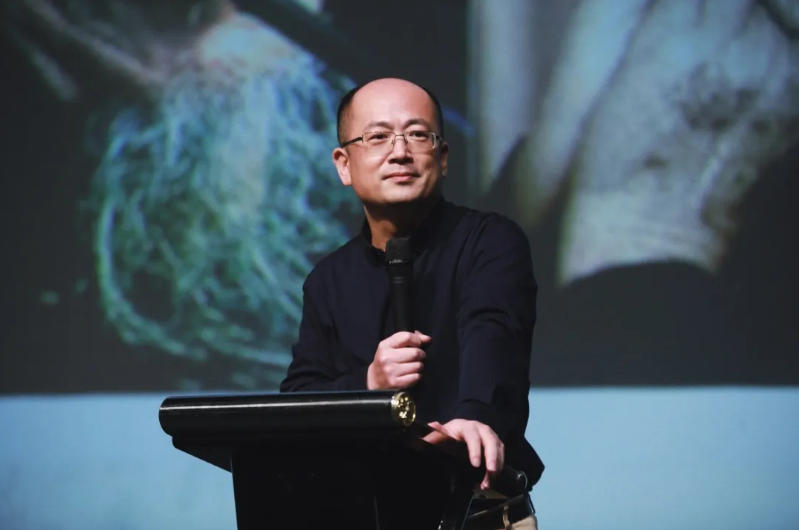
Dr. Zou Shien | A Physician’s Mission in Gynecological World
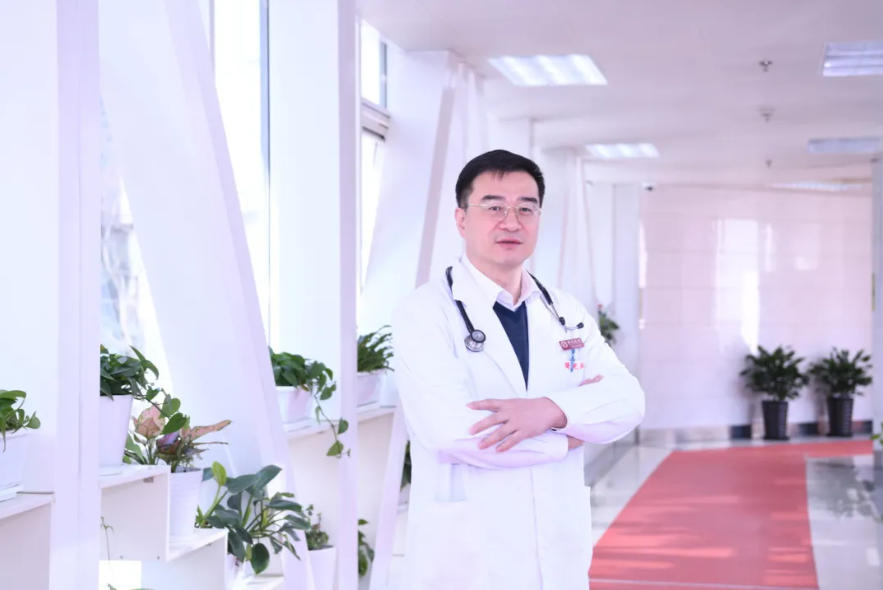
Dr. Cui Song | Healing the Heart, in Every Sense
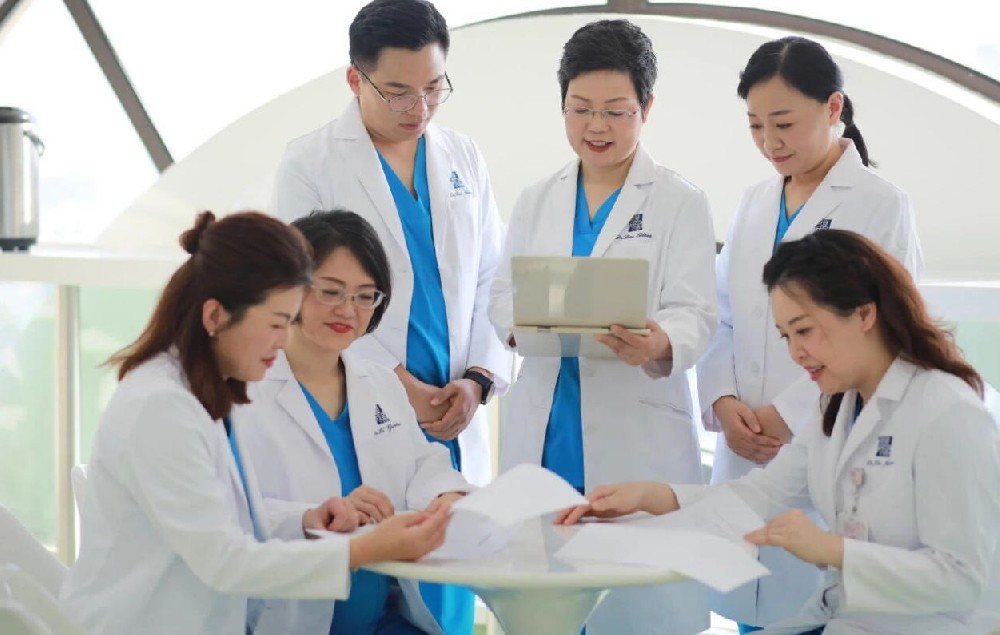
Dr. Bao Shihua | Where Dreams Begin from Reproductive Immunology
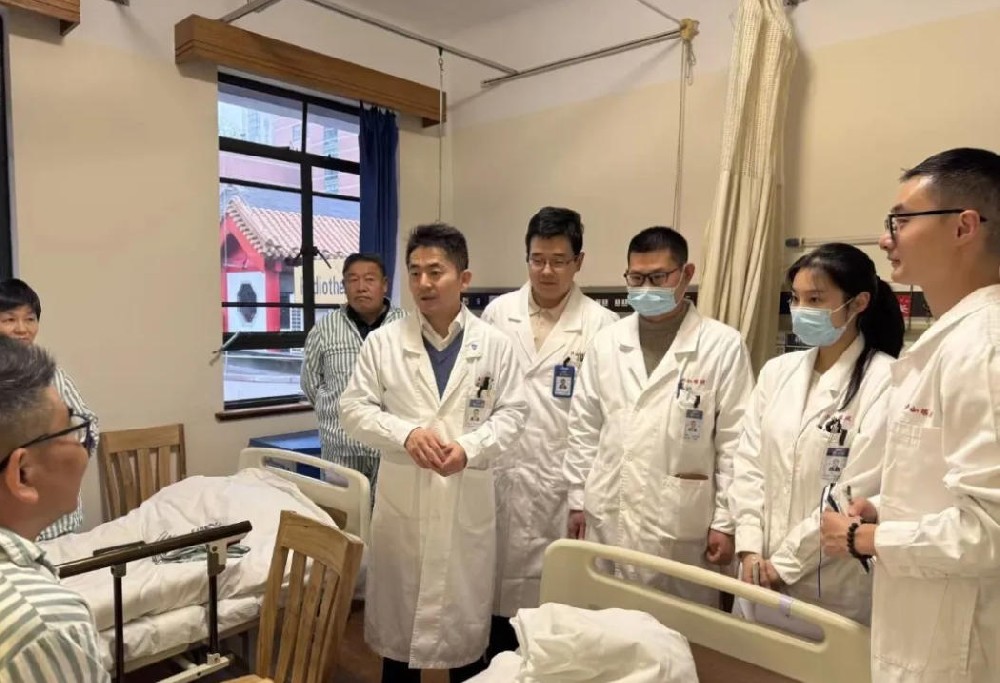
Dr. Yang Zhigang | The Art of the Healer: Between the Brush and the Brain
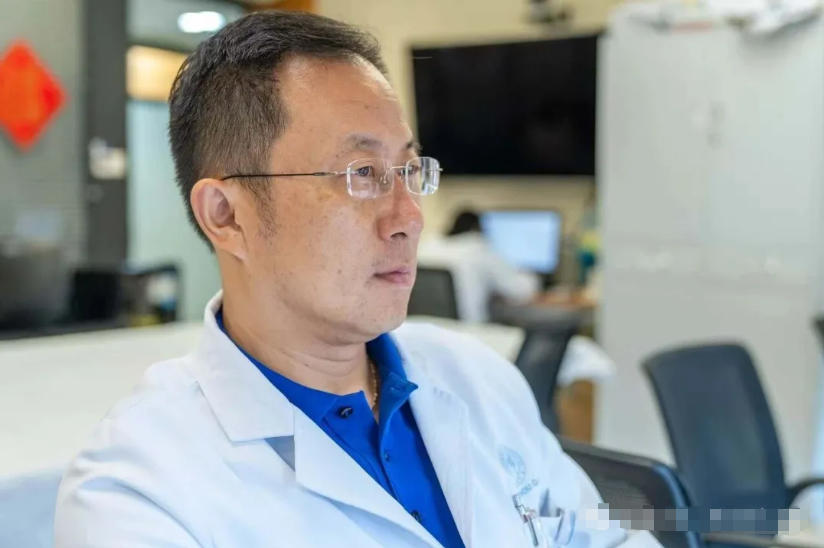
Dr. Zhou Qianjun | Sculpting Life in the Chest
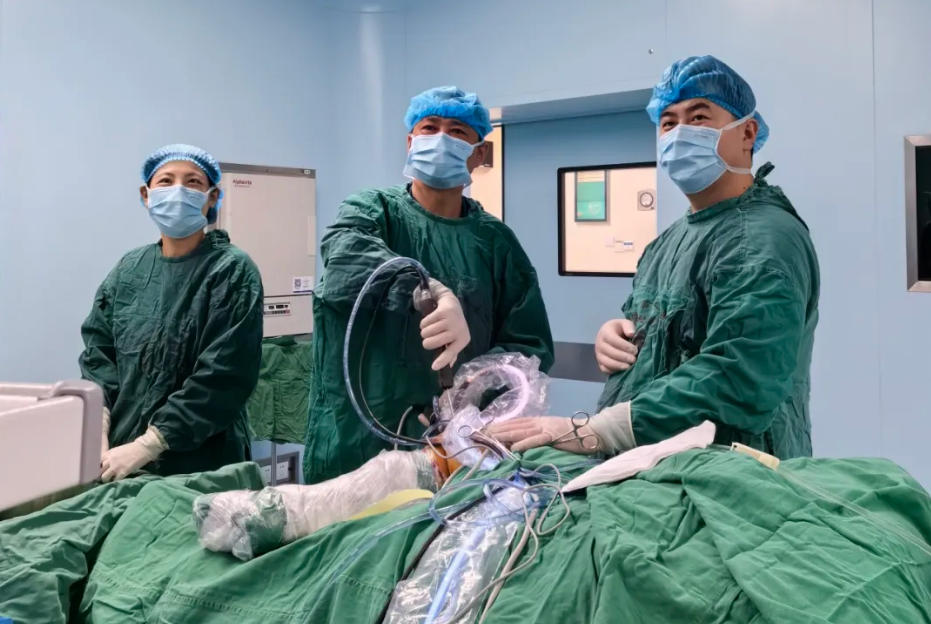
Dr. Cai Junfeng | Guarding Bone and Joint Health, Improving Quality of Life
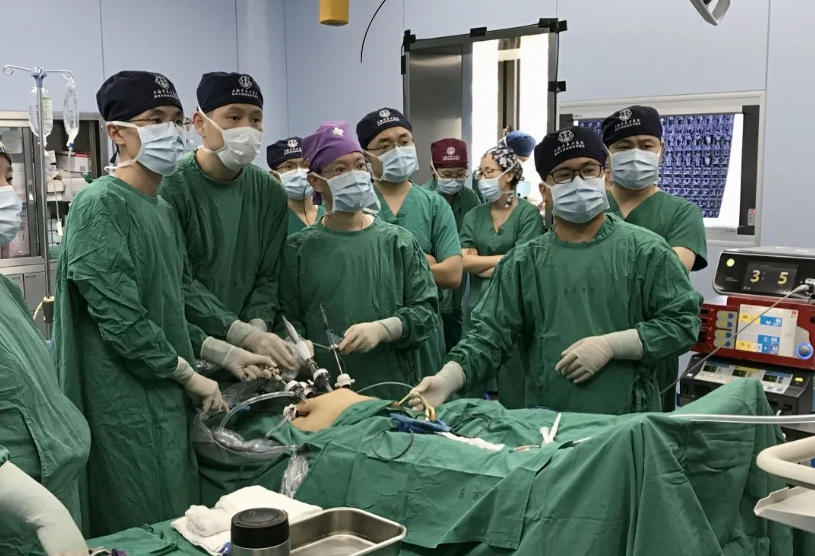
Dr. Cui Xingang | The Medical Dream of a Shanghai Urologist

Dr. Xu Xiaosheng|The Gentle Resilience of a Male Gynecologist

Dr. Shi Hongyu | A Cardiologist with Precision and Compassion

Dr. Zhang Guiyun|The Inspiring Path of a Lifesaving Physician